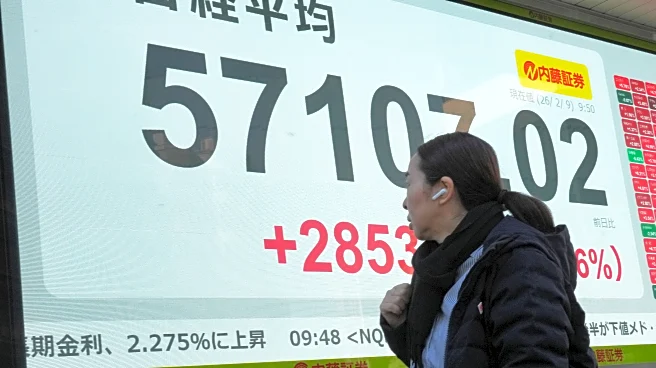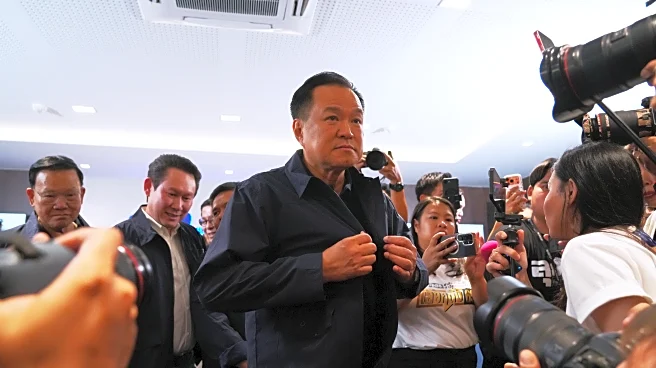What is the story about?
What's Happening?
States across the U.S. are facing significant financial challenges due to President Trump's new tax and spending plan, which includes substantial cuts to Medicaid and the Supplemental Nutrition Assistance Program (SNAP). The plan, known as Trump's One Big Beautiful Bill, extends tax cuts and increases funding for immigration enforcement and national defense, while reducing Medicaid funding by nearly $1 trillion and SNAP by $186 billion over ten years. These cuts impose work requirements that states must administer, leading to increased costs and responsibilities. Critics warn that essential state programs, including road and benefits projects, will likely be scaled back.
Why It's Important?
The budget cuts represent a major shift in financial responsibility from the federal government to the states, which must balance their budgets annually. This could lead to deep cuts in state programs and services, affecting millions of Americans who rely on Medicaid and SNAP. The Congressional Budget Office estimates that 10 million fewer people will have health insurance and 3.2 million fewer will participate in SNAP monthly. The changes could exacerbate existing budgetary pressures on states, potentially leading to higher taxes or reduced services.
What's Next?
States are beginning to implement cuts and prepare for the increased financial burden. Some states are considering tax increases, while others are seeking to cut taxes despite the added costs. The implementation of work requirements and other changes will require states to update systems and potentially increase staffing. The federal government is expected to provide guidance on these changes, but states are already expressing concerns about the feasibility and impact.
Beyond the Headlines
The budget cuts raise questions about the federal government's role in supporting vulnerable populations and the ethical implications of shifting financial burdens to states. The changes could lead to long-term shifts in how social services are funded and administered, with potential impacts on public health and economic stability.
















